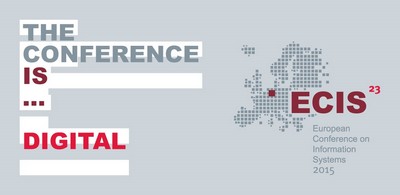DOI
10.18151/7217440
Abstract
Consumerization of information technology (IT) refers to consumer technologies finding their way into enterprises. In this context, bring-your-own-device (BYOD) describes the phenomenon of privately-owned mobile devices being brought into organizations. While research on the general topic is scarce, initial studies have identified personal innovativeness in IT as one important driver for this behavior. However, the reasons why innovative people are more likely to use their privately-owned devices for work remain largely undiscovered. This study argues that technology acceptance factors with respect to both the enterprise-provided as well as the privately-owned mobile devices are important mediators. Moreover, a model using perceived usefulness and perceived ease of use as mediators is derived. The model’s underlying hypotheses are then tested using data from a quantitative survey in Germany. The results show that beliefs towards the ease of use of both the enterprise-provided as well as the privately owned mobile IT mediate the relationship between personal innovativeness in IT and BYOD intention. The findings are discussed with respect to implications for theory and practice and an outlook is given on potential future research.
Recommended Citation
Ortbach, Kevin, "Unraveling the Effect of Personal Innovativeness on Bring-Your-Own-Device (BYOD) Intention - The Role of Perceptions Towards Enterprise-Provided and Privately-Owned Technologies" (2015). ECIS 2015 Completed Research Papers. Paper 141.
ISBN 978-3-00-050284-2
https://aisel.aisnet.org/ecis2015_cr/141


